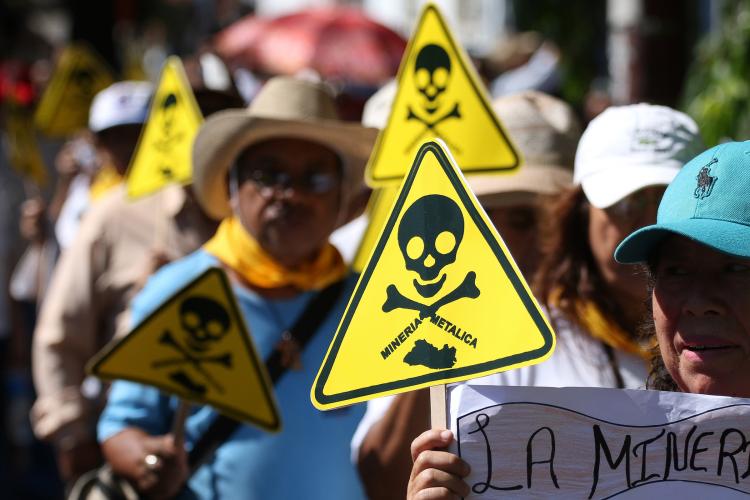by the El Reportero’s wire services
El Salvador became the first country in the world to ban all metal mining yesterday. The law blocks all exploration, extraction and processing of metals, whether in open pits or underground, as well as use of toxic chemicals like cyanide and mercury, reports Reuters.
Legislators from across the political spectrum approved a bill that turned a decade-old moratorium on mining into law — an initiative with broad public support, including the influential Roman Catholic Church, reports the New York Times. The ban aims to protect the country’s water supply, and thwarts international companies’ efforts to tap into a gold belt running across the country’s northern provinces.
The initiative follows a long-standing dispute with a Canadian-Australian company over an environmentally questioned gold project, explains the Financial Times. Last year, the World Bank’s arbitration tribunal threw out a seven-year suit filed by a unit of Canadian-Australian company OceanaGold, over its failure to be granted permits for the El Dorado project in the north of the country.
Activists say the project risked damaging already scarce and contaminated water supplies, in the second most environmentally degraded country in the region. Retaining rainwater in El Salvador is difficult due to unsustainable farming practices and inadequate industrial controls. More than 90 percent of the country’s surface waters are estimated to be polluted by toxic chemicals, heavy metals and waste matter, according to the Guardian.
The vote built on increasing popular opposition to mining projects in the region and activists hope it can serve as a model for other countries, according to the Guardian. Campaigners in favor cast the issue as “No to mining, yes to life.”
Activists around the region — where protesters against mining interests routinely turn deadly — are watching the case closely, according to FT, though partial bans are in place in other countries, for example prohibiting the use of cyanide or open-pit mining.
Canada benefits from Mexico tourism while USA suffers
Exchange rate and visa changes have impact
Mexicans are forsaking visits to the United States, many in favor of Canada where their money goes further and visa requirements have been scrapped, according to the latest data from ForwardKeys, which predicts future travel patterns by analyzing 16 million booking transactions a day.
While US President Trump has talked about building a wall on the Mexican border, Canada has been enjoying a boom in visitors.
The timing of their visa waiver – falling around the time of the US election – appears to have been particularly apposite.
According to the data, starting March 2016 there was a 16 percent increase in travel in the period up to the US presidential election. When visa-free travel came into effect on Dec. 1, 2016, there followed an 82 percent increase compared to the preceding year.
Before November’s US election, bookings from Mexico to the US were down 9 percent. After the US presidential election, the decline persisted in the face of an increasing fall in the value of the US dollar (USD) against the Mexican peso (MXN). The setback was not uniform however, as there was over 3 percent growth in business travel to the USA, most notably to Detroit.
Olivier Jager, CEO ForwardKeys, said: “Attributing the fall in Mexican visitors to the USA to Donald Trump’s rhetoric is not proven. Currency concerns are much more likely explanation, combined with the recent relative relaxation of entry restrictions to Canada.”



